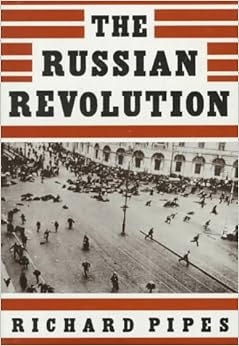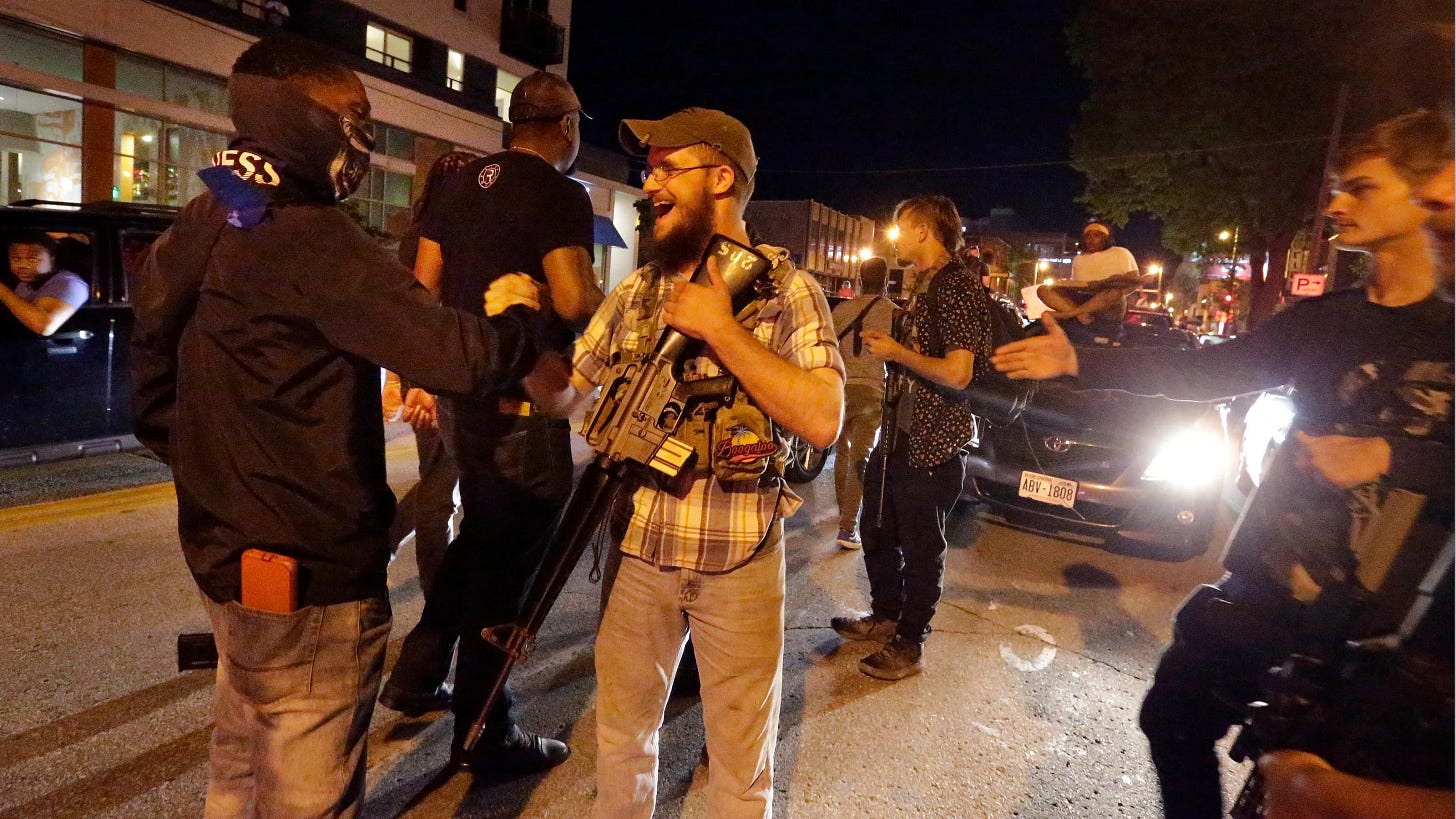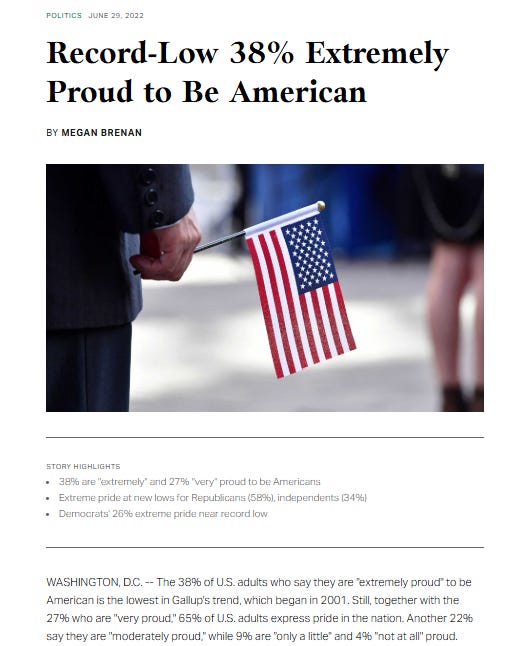Very interesting notes on peasants from Richard Pipes's "The Russian Revolution"
Culture shock
I’ve already recommended Richard Pipes’s book The Russian Revolution. I think it’s without a doubt the best and most comprehensive survey of those titular events and the broader cultural and historical conditions that created them.
One part of the book that I found particularly useful and striking was its description of the Russian peasantry. Peasants represented about 80% of the Russian population during the Revolution. This group suffered enormously before, during, and after the Bolshevik takeover. However, contrary to the expectations of the monarchy, culturally conservative peasants did not serve as a bulwark against the rising tide of revolution. Rather, they joined in on the chaos in very large numbers. This usually didn’t mean that they became Bolsheviks. In fact, usually peasants were extremely hostile to the Bolsheviks (who robbed and terrorized them). However, despite scattered local pushback, the peasantry still proved to be mostly inert and unwilling or unable to participate in any kind of systemic resistance that might have actually removed the Bolsheviks from power.
It’s important to understand that Russian peasants back then weren’t necessarily stupid and they weren’t even necessarily poor relative to others in society, they simply had fundamentally different worldviews and priorities than one would expect from citizens of a modern nation state. These differences in perspective left them ill-prepared to deal with the huge and novel political challenges of the Revolution.
As I’ve laid out several times before, there is something wrong with large swaths of the American Right today. Emotional incontinence is the norm. Every new development is responded to with hysterics. Lies are incessant and people will increasingly believe anything. Such rightwingers have unrealistic expectations which, when they are not met, give way to even more unrealistic demands. People do not think to contribute anything other than, often poorly informed or dishonest, commentary or criticism. They view politics as an activity that consists of getting angry at your phone. When this fails to produce the results they want (or even when it does), it only serves to justify to them further inaction or attacks on the few friendly entities that might still offer a path to success. There is a seemingly unbreakable fixation on escapist fantasies like civil war or national divorce which would not only fail to solve the problems facing America today, but actually make them far worse in the near-impossible event they occurred. At a fundamental level, many rightwingers see themselves as passengers rather than crew.
This disconnection is understandable. American life has turned into a clown show over the last few decades. We have watched the destruction or degradation of most important social and cultural norms, systematic discrimination against the country’s core population and the unnatural exclusion of them from important institutions, the introduction of countless arbitrary and delegitimizing laws and practices, profound alienation caused by changes in technology and consumer behavior, the constant division of households and pervasiveness of impermanent lifestyles, skyrocketing drug use, gambling, and participation in destructive fads, and even the importation of tens of millions of actual peasants from foreign countries, among many other changes.
As a result of these truly massive shifts in American life, I think that more and more Americans are no longer taking their cues and attitudes from the traditional dynamic American middle class that propelled the country to its historical success. Rather, they are becoming more like peasants in their outlook and behavior. This doesn’t mean they are necessarily poor, or stupid, or inferior in some other way—it means they are adopting a new civilizational mindset that makes their very real problems increasingly impossible to solve.
Of course, our problems in America are solvable. Even this problem is solvable, it’s been solved many times before. I hope you find the following selection from Pipes’s The Russian Revolution as interesting as I did. Obviously, the parallels between the new rightwing mindset and that of peasants before the Russian Revolution aren’t exhaustive, in fact there are many places where the comparison completely falls apart, but I think there’s enough there that something can be gained from examining these issues. We can avoid the trap that is being laid for us.
Some final notes: I didn’t bother recreate the numerous endnotes Pipes included in his piece. It would have taken too long and not added much for the average reader. I’ve left the numbers in just so you know they’re there. I’ve also bolded passages that I found particularly relevant or interesting. This bolding was not in the original text. I strongly recommend buying and reading The Russian Revolution by Richard Pipes, it really is a wonderful book. You can find it here. The audiobook is also good to go.
And now to the text:
****
[Begin selection]
… Under assault from the Westernized intelligentsia, the monarchy came to regard the peasant as the bearer of “true” Russianness and it went to great lengths to protect him from the corrupting influence of the city. It institutionalized the cultural isolation of the peasantry by tying it to the village commune and subjecting it to special laws and taxes. It offered peasants few educational opportunities, and such little schooling as it provided it preferred to entrust to the clergy. It placed obstacles to the entry of outsiders into villages and forbade Jews to settle in them.
At the turn of the century, the conservative establishment saw in the alliance of the Crown and the village the cornerstone of the country’s stability. As events were to show, this was a profound misconception. As conservative as the muzhik indeed was, his world outlook, his values, and his interests made him exceedingly volatile. Unlikely to initiate a revolution, he was certain to respond to urban disorders with a revolution of his own.
****
The Russian peasant household was organized on a simple authoritarian model, under which full authority over the members and their belongings was entrusted to one person, known as bol’shak or khoziain. This family patriarch was usually the father, but the post could also be assigned, by common consent, to another adult male. The elder’s functions were many: he assigned farm and household duties, he disposed of property, he adjudicated domestic disputes, and he represented the household in its dealings with the outside world. Customary peasant law endowed him with unquestioned authority over his dvor: in many ways, he was heir to the authority of the serf owner. Since the Emancipation Edict of 1861, the bol’shak was also authorized by the government to turn over members of his household to administrative organs for punishment. He was the paterfamilias in the most archaic sense of the word, a replica in miniature of the Tsar.
The political and economic attitudes of Russian peasants had been formed in the first five hundred years of the current millennium, when no government inhibited their movement across the Eurasian plain and land was available in unlimited quantities. The collective memory of this era lay at the root of the peasantry’s primitive anarchism. It also determined the practices of inheritance followed by Russian peasants into modern times. It has been observed that in regions of the world where land is in short supply, landowners, both nobles and peasants, are likely to practice primogeniture, under which the bulk of the property is left to the eldest son. Where it is available in abundance, the tendency is to adopt “partible” inheritance, dividing the land and other belongings equally among the male heirs.1 Even after agricultural land had become scarce, Russians continued to adhere to the old practices. Until 1917–18, when inheritance was outlawed, Russian landlords and peasants divided their properties in equal shares among male descendants. So entrenched was the custom that the monarchy’s attempts, launched under Peter I, to have the upper class keep its estates intact by bequeathing them to a single heir proved unenforceable.
The muzhik held most of his land as a communal allotment (nadel) to which he held no title: when the household died out or moved away, it reverted to the commune. But any land held by the peasant in private property outside the commune, as well as all his movable wealth (money, implements, livestock, seed grain, etc.), customary law allowed his heirs to distribute among themselves. The practice of partible inheritance had profound effects on Russian rural conditions and, indeed, on many other seemingly unrelated aspects of Russian life. For as has been pointed out, the
transmission mortis causa [by reason of death] is not only the means by which the reproduction of the social system is carried out … it is also the way in which interpersonal relationships are structured.4
After the passing of its head, the household’s belongings were divided, whereupon the household dissolved and the brothers parted to set up households of their own. As a result, the dvor did not outlast the life span of its head, which made this basic institution of the Russian countryside exceedingly transient. In every generation—that is, three or four times a century—households throughout Russia broke apart and subdivided, much as do amoebas or other rudimentary biological organisms. Russian rural life perpetuated itself by a ceaseless process of fission, which inhibited the development of higher, more complex forms of social and economic organization. One dvor begat other dvory, which, in turn, multiplied in the same manner, like producing like and nothing new and different being given an opportunity to emerge.
The consequences of this custom become apparent when examined in the light of societies where the peasantry practiced indivisibility of property. Primogeniture makes possible a high degree of rural stability and gives the state a firm base of support in rural institutions. A Japanese sociologist thus compares the situation in Chinese and Indian villages, where primogeniture was unknown, with that in his own country, where it was prevalent:
Because the principle of primogeniture succession held in Japan, the ruling stratum of a village tended to be comparatively stable over the generations. This stability was lacking in China and India.… The Chinese rule of equal sharing [of inheritance] prevents the maintenance of family status, and the status changes from generation to generation. As a result, the village power center shifts, the leaders’ authority wanes, and no village-wide domination or status-subordination develops.… In Japan, lineally determined familism permeates the entire village structure; the main, or parent, house can easily perpetuate itself through the family inheritance system, and thereby acquire traditional authority. The family, clan, and village function together and promote unity. Thus, in Japanese rural society, the main-branch family, parent-child, or master-servant relationship influences to some degree all aspects of village social life.5
The observations here made about China apply to Russia: in both cases rural institutions were underdeveloped and ephemeral.
Several features of the peasant dvor call for emphasis. The household allowed no room for individuality: it was a collective which submerged the individual in the group. Second, given that the will of the bol’shak was absolute and his orders binding, life in the dvor accustomed the peasant to authoritarian government and the absence of norms (laws) to regulate personal relations. Third, the household made no allowance for private property: all belongings were held in common. Male members acquired outright ownership of the household’s movable property only at its dissolution, at which time it once again turned into the collective property of the new household. Finally, there was no continuity between households, and consequently neither pride in ancestry nor family status in the village, such as characterized Western European and Japanese rural societies. In sum, the Great Russian peasant, living in his natural environment, had no opportunity to acquire a sense of individual identity, respect for law and property, or social status in the village—qualities indispensable for the evolution of more advanced forms of political and economic organization. Enlightened Russian statesmen became painfully aware of this reality in the early years of the twentieth century and tried to do something to integrate the peasant into society at large, but it was late.
***
The three rural institutions—the household, the village, and the commune—provided the environment which shaped the muzhik’s social habits. They were well adapted to the harsh geographic and climatic conditions in which Russian agriculture had to be carried out. But nearly everything the peasant learned in his familiar environment proved to be useless and sometimes positively harmful when applied elsewhere. Living in a small community, the Russian peasant was unequipped for the transition to a complex society, composed of individuals rather than households and regulated by impersonal relations, into which he would be thrust by the upheavals of the twentieth century.
***
Compared with rural settlements in other parts of the world, the Russian village was loosely structured and fluid, with few institutions to provide continuity. It was the household rather than the village that served as the building block of Russian rural society. The principal village official, the starosta, was chosen, often against his will, at the insistence of the bureaucracy, which wanted a village representative with whom to deal. Since he could be removed by the same bureaucrats, he represented not so much the population as the government.7
The all-male village assembly, or sel’skii skhod, was connected with the commune rather than the village—institutions which, as will be pointed out below, were not identical. Composed of household elders, it met periodically to decide on matters of common concern and then dispersed: it had no other responsibilities and no standing organization. The absence in the village of institutional forms bears emphasis because it explains the extreme paucity of political experience in the life of Russian peasants. The Russian village could display great cohesion when threatened from the outside. But within its own confines, it never developed organs of self-government able to provide the peasants with political practice—that is, teach them to translate the habits of personal relations acquired within the walls of the household into more formal social relations.
The critical factor in the underdevelopment in Russia of a durable and functional village structure, the reason for the village’s fluidity, was, as in the case of the dvor, the absence of traditions of primogeniture. Compared with an English or Japanese village, the Russian village resembled a nomadic encampment: the peasant’s log cabin (izba), constructed in a few days and frequently destroyed by fire, was not much more durable than a tent.
***
The most difficult aspect of rural Russia to understand is peasant mentality, a subject on which the scholarly literature is quite unhelpful. There exist many works on the economic conditions of the pre-revolutionary peasantry, on its folklore and customs, but virtually no scholarly studies that explain what the muzhik believed and how he reasoned.30 It is as if Russian intellectuals regarded the peasant mind as an immature specimen of the progressive mind (their own) and hence undeserving of serious attention. To understand the peasant mentality, one must have recourse to other than scholarly sources, mainly belles lettres.31 These can be supplemented with information gathered by students of peasant customary law, which provides an oblique insight into the peasant mind as revealed by the way he coped with problems of daily life, especially property disputes.32 Familiarity with this material leaves little doubt that the culture of the Russian peasant, as that of the peasantry of other countries, was not a lower, less developed stage of civilization but a civilization in its own right.
As has been pointed out, the world of the Russian peasant was largely self-contained and self-sufficient. It is no accident that in the Russian language the same word—mir—is used for the peasant commune, the world, and peace. The peasant’s experiences and concerns did not extend beyond his own and neighboring villages. A sociological inquiry into peasant attitudes carried out in the 1920s indicated that even after a decade of war, civil war, and revolution which had dragged the Russian peasantry into the vortex of national and international affairs, the muzhik had no interest in anything outside the confines of his canton. He was willing to let the world go its own way as long as it left him alone.33 Pre-revolutionary literary sources similarly stress the absence among the peasantry of a sense of belonging to the state or nation. They depict it as insulated from influences external to the village and lacking in awareness of national identity. Tolstoy emphatically denied the peasant a sense of patriotism:
I have never heard any expression of patriotic sentiments from the people, but I have, on the contrary, frequently heard the most serious and respectable men from among the masses giving utterance to the most absolute indifference or even contempt for all kinds of manifestations of patriotism.34
The truth of this observation was demonstrated during World War I, when the Russian peasant soldier, even while performing courageously under difficult conditions (shortages of weapons and ammunition), did not understand why he was fighting since the enemy did not threaten his home province. He fought from the habit of obeying: “They order, we go.”35 Inevitably, once the voice of authority grew faint, he stopped obeying and deserted. Equal to the Western soldier in physical courage, he lacked the latter’s sense of citizenship, of belonging to a wider community. General Denikin, who observed this behavior at close quarters, blamed it on the total absence of nationalist indoctrination in the armed forces.36 But it is questionable whether indoctrination by itself would have made much difference. Judging by Western experience, to bring the peasant out of his isolation it was necessary to develop institutions capable of involving him in the country’s political, economic, and cultural life: in other words, making him a citizen.
The majority of French and German citizens in the early 1900s were also either peasants or urban dwellers a mere generation or two removed from the peasantry. Until quite recent times the Western European peasant had not been culturally superior to the Russian muzhik. Speaking of nineteenth-century France, Eugen Weber draws a picture familiar to the student of Russia: large parts of the country populated by “savages” living in hovels, isolated from the rest of the nation, brutalized and xenophobic.2 The situation was not much better in other rural areas of Western Europe. If by 1900 the European peasant had become something different, the reason is that in the course of the nineteenth century institutions had been created that pulled him out of rural isolation.
Using Norway as a model, several such institutions can be identified: the church, the school, the political party, the market, and the manor.3 To these we must add private property, which Western scholars take so much for granted that they ignore its immense socializing role. All were weakly developed in late Imperial Russia.
Observers of pre-revolutionary Russia concur that the Orthodox Church, represented in the village by the priest (pop), exerted little cultural influence on the parishioners. The priest’s primary function was ritualistic-magic, and his main duty to ensure the flock’s safe passage into the next world. A. S. Ermolov, in discussing with Nicholas II the revolutionary unrest, disabused him of the notion that the government could rely on the priests to keep the villages in line: “the clergy in Russia has no influence on the population.”37 The cultural role of the Church in the rural districts was confined to elementary schooling, which taught children to read and write, with bits of religious didacticism thrown in. Higher values—theology, ethics, philosophy—were the preserve of the monastic or “black” clergy, which alone had access to Church careers but was not directly involved in parish life. Because, unlike his Western counterpart, the village priest received little if any financial support from the Church and had no hope of making a career in the clerical hierarchy—this was reserved for unmarried, monastic priests—the vocation did not attract the best elements. The peasant is said to have treated priests “not as guides and advisers, but as a class of tradesmen, who have wholesale and retail dealings in sacraments.”38
Before 1917, Russia had no system of compulsory education, even on the elementary level, such as France had introduced in 1833 and most of Western Europe adopted by the 1870s. The need for such a system was often discussed in government circles but it was never realized, partly for lack of money, partly from fear of the influence that secular teachers, mostly intellectuals with left-of-center political ideas, would have on peasant youths. (Conservatives complained that schools taught disrespect for parents and old people and made pupils dream of “far-off rivers flowing with milk and honey.”)39 In 1901, Russia had 84,544 elementary schools with an enrollment of 4.5 million pupils, the administration of which was divided between the Ministry of Education (47.5 percent) and the Holy Synod (42.5 percent). In terms of pupils enrolled, the ministry enjoyed a clear advantage (63 percent and 35.1 percent).40 This was hardly adequate for a country with 23 million children of school age (seven to fourteen years). Literacy, promoted by the zemstva and volunteer organizations, did make rapid progress, especially among males, largely because recruits with a certificate attesting to the completion of primary school served shorter terms of military service (four years instead of six): in 1913, nearly 68 percent of the recruits were said to be literate, but it is doubtful whether many of them could do more than sign their name. Approximately only one in five of these recruits had a school certificate qualifying him for shorter service.41 Neither the schools nor the private associations dedicated to the spread of literacy inculcated national values, because in the eyes of the government, nationalism, a doctrine that considers the “nation” or “people” to be the ultimate sovereign, was a threat to autocracy.42
Until 1905, Russia had no legal political institutions outside the bureaucratic chain of command. Political parties were forbidden. Peasants could vote in elections to zemstva, but even in this case their choice was narrowly circumscribed by bureaucrats and government-appointed officials. In any event, these organs of self-government dealt with local, not national issues. Peasants could not even aspire to a career in the Imperial civil service, since its ranks were for all practical purposes closed to them. In other words, peasants, even more than the members of the other non-noble estates, were excluded from the country’s political life.
Peasants in Russia were not entirely insulated from the commercial marketplace, but the latter played a marginal role in their lives. For one, they did not care to eat food that they did not grow themselves.43 They bought little, mainly household and farm implements, much of it from other peasants. Nor did they have much to sell: most of the grain that reached the market came from landlord estates or large properties owned by merchants. The ups and downs of the national and international commodity markets, which directly affected the well-being of American, Argentinian, or English farmers, had little bearing on the condition of the muzhik.
The manor was viewed by conservative Russians as the outpost of culture in the countryside, and some well-meaning agrarian specialists opposed the expropriation of landlord properties for distribution among peasants from fear of the cultural consequences. This fear may have been justified in the economic sense of the word “culture,” in that landlord estates were indeed operated more efficiently and yielded consistently better crops: according to official statistics 12–18 percent more, but in fact possibly as much as 50 percent.4 The cultural influence of the manor on the countryside in the spiritual and intellectual sense of the word, however, was insignificant. For one, there were not enough gentry in the countryside: as we have noted, seven out of ten dvoriane resided in the cities. Second, an unbridgeable psychological gulf separated the two classes: the peasant insisted on treating the landlord as an interloper and felt he had nothing to learn from him. Tolstoy’s “A Landlord’s Morning” (“Utro pomeshchika”) and Chekhov’s village tales show the manor and the hut talking at cross-purposes, without a common language of communication: and where such a language was absent, there could be no transmission of ideas or values. A Frenchman who visited Russia in the 1880s saw the Russian landlord “isolated in the midst of his quondam serfs, outside of the commune, outside even of the volost’ in which he usually resides: the chain of serfdom broken, nothing else binds him to his former subjects.”44
Private property is arguably the single most important institution of social and political integration. Ownership of property creates a commitment to the political and legal order since the latter guarantees property rights: it makes the citizen into a co-sovereign, as it were. As such, property is the principal vehicle for inculcating in the mass of the population respect for law and an interest in the preservation of the status quo. Historical evidence indicates that societies with a wide distribution of property, notably in land and residential housing, are more conservative and stabler, and for that reason more resilient to upheavals of all sorts. Thus the French peasant, who in the eighteenth century was a source of instability, became in the nineteenth, as a result of the gains of the French Revolution, a pillar of conservatism.
From this point of view, Russia’s experience left a great deal to be desired. Under serfdom, the peasant had, legally speaking, no property rights: the land was the landlord’s, and even his movable belongings, although safeguarded by custom, enjoyed no legal protection. The Emancipation Act entrusted his allotment to the commune. And although after 1861 the peasant avidly accumulated real estate, he failed clearly to distinguish it from his communal allotment, which he held only in temporary possession. In his mind, ownership of land, the principal form of wealth, was indissolubly bound up with personal cultivation and he had no respect for the property rights of non-peasants merely because they held a piece of paper granting them title. In contrast to the peasantry of Western Europe, the muzhik lacked a developed sense of property and law, which made him poor material for citizenship.
Thus, there were few bridges connecting the Russian village with the outside world. The officials, the gentry, the middle classes, the intelligentsia lived their lives and the peasants theirs: physical proximity did not make for the flow of ideas. The appearance (in 1910) of Ivan Bunin’s novel The Village, with its devastating picture of the peasantry, struck the reading public as something from the darkest ages. The book, writes a contemporary critic, “had a shattering effect”:
Russian literature knows many unvarnished depictions of the Russian village, but the Russian reading public had never before confronted such a vast canvas, which with such pitiless truth revealed the very innards of peasant and peasantlike existence in all its spiritual ugliness and impotence. What stunned the Russian reader in this book was not the depiction of the material, cultural, legal poverty—to this he had been accustomed from the writings of talented Russian Populists—but the awareness of precisely the spiritual impoverishment of Russian peasant reality; and, more than that, the awareness that there was no escape from it. Instead of the image of the almost saintly peasant from which one should learn life’s wisdom, on the pages of Bunin’s Village the reader confronted a pitiful and savage creature, incapable of overcoming its savagery through either material prosperity … or education.… The maximum that the Russian peasant, as depicted by Bunin, was capable of achieving, even in the person of those who rose above the “normal” level of peasant savagery, was only the awareness of his hopeless savagery, of being doomed …45
The peasant, who knew how to survive under the most trying circumstances in his native countryside, was utterly disoriented when separated from it. The instant he left the village, his mir or world, ruled by custom and dominated by nature, for the city, run by men and their seemingly arbitrary laws, he was lost. The Populist writer Gleb Uspenskii, who rather idealized rural Russia, thus described the effects of the uprooting on the muzhik:
the vast majority of the Russian people is patient and majestic in bearing misfortunes, youthful in spirit, manly in strength, and childishly simple … as long as it is subjected to the power of the earth, as long as at the root of its existence lies the impossibility of flaunting its commands, as long as these commands dominate its mind [and] conscience and fill its being … Our people will remain what it is for as long … as it is permeated with and illuminated … by the warmth and glow of the mother raw earth … Remove the peasant from the land, from the anxieties it brings him, the interests with which it agitates him, make him forget his “peasantness”—and you no longer have the same people, the same ethos, the same warmth which emanates from it. There remains nothing but the vacuous apparatus of the vacuous human organism. The result is a spiritual void—“unrestrained freedom,” that is, boundless, empty distance, boundless, empty breadth, the dreadful sense of “go wherever your legs will carry” …46
The outstanding qualities of the peasant’s mind, especially of one inhabiting an environment as harsh as Russia’s, derived from the fact that he lived at the mercy of nature. To him nature was not the rational abstraction of philosophers and scientists, but a capricious force that assumed the shape of floods and droughts, of extremes of heat and cold, of destructive insects. Being willful, it was beyond comprehension and, of course, beyond mastery. This outlook bred in the peasant a mood of acquiescence and fatalism: his religion consisted of magic incantations designed to propitiate the elements. The notion of a supreme order permeating alike the realms of nature and law had for the peasant no meaning. He thought rather in the archaic terms of Homeric epics in which the whims of gods decide human destiny.
Although he had nothing resembling the concept of natural law, the muzhik had a sense of legality rooted in custom. Some students of the subject believed that the Russian village had a system of legal practices that fully equaled that embodied in formal jurisprudence.47 Others denied that Russian peasant custom had the necessary characteristics of a genuine legal system, such as cohesion and uniform applicability.48 The latter view seems the more convincing. Russian peasants knew law (lex) but not justice (jus). This is hardly surprising. Self-contained and largely isolated communities have no need to distinguish between custom and law. The distinction first arose in the third century B.C.E. as a result of practical problems raised by Macedonian conquests which for the first time brought under one scepter scattered communities with the most diverse legal customs. It was in response to this situation that Stoic philosophers formulated the concept of the law of nature as a universal set of values binding mankind. To the extent that Russian rural communities continued to lead isolated existences they had no need for a comprehensive system of legal norms and were content with a mixture of common sense and precedent, settling their disagreements informally, much as do families.
This is seen in the fact that the rural courts run by peasants for peasants could show wild swings in their verdicts without revealing patterns. One student of the subject concluded that peasants viewed law “subjectively” rather than objectively, which really meant they knew no law.49 Others conveyed the same idea by claiming that the muzhik acknowledged only “living law” (zhivoe pravo), judging each case on its own merits, with “conscience” as the decisive factor.50 Whether or not one is justified in regarding such practice as falling within the definition of law, it is certain that the Russian peasant treated ukazy issued by the government not as laws but as one-time ordinances, which had the effect of forcing the authorities to issue repeatedly the same orders, or else the peasant paid no heed:
Without a fresh ordinance, no [peasant] will carry out [a previous directive]: everyone thinks that this directive had been given “for that time only.” An order is issued forbidding the cutting of birch trees for the construction of May huts. Where the order had been received, that year no birches were cut. The following year no order came out and the people everywhere proceeded to build May huts. A “strict” instruction is issued to plant birches along the streets. It is done. The birches dry up. The next year there is no directive, and therefore no one replants them: the district officials themselves forget all about it. The district official … reasons like the peasants that the directive had been given for that one occasion only.… It is time to pay taxes. One might expect everyone to know from experience that they must be paid when due, that they will not be omitted. And still, without a special and, moreover, stern directive no one, no rich peasant, will pay. Perhaps [it is thought] they will manage without taxes …51
This attitude toward law, as directives issued for no discernible reason and, therefore, binding only insofar as they are imposed by force, prevented the peasant from developing one of the basic attributes of citizenship.
The notion advanced by Slavophile and Populist writers that the muzhik had a system of law and, moreover, one based on superior moral principles was challenged by jurists and practicing lawyers. There are interesting remarks on this subject by an attorney who had much professional experience before the Revolution with peasant legal practices.
Liberal minds in Russia were infected with Romanticism and saw in customary law some sort of peculiarity of Russian life which, allegedly, distinguished Russia favorably from other countries.… Many people collected materials on customary law; attempts were made to analyze it and efforts of a rather feeble kind were undertaken to ascertain its norms.
All these attempts came to naught for a simple reason: there was in Russia no customary law, as there was in general no law for the peasants. Here it must be stated that … every volost’ and volost’ court had its own customary law.… As proprietor of an estate, I had … occasion to establish close contact with the rural population, which turned to me, as a specialist, with requests to resolve all kinds of disputes and misunderstandings in the realm of land ownership and property rights in general. I was commonly appealed to in matters involving divisions of family property. I had in my hands many decisions of volost’ courts, and notwithstanding the habit of making juridical generalizations, I was never able to detect the existence of some kind of general formula which even the given volost’ court would apply to concrete, frequently recurring questions. Everything was based on arbitrariness, and, moreover, not the arbitrariness of the court’s members, consisting of peasants, but that of the volost’ clerk, who awarded verdicts at his whim, even though the members of the court affixed their signatures to it. The people had no faith in the court. The verdict of a volost’ court was invariably seen as the result of pressures from one of the parties or of hospitality in the form of a bottle or two of vodka.… And when the case reached a higher instance, that is, the [volost’] assembly, and subsequently the guberniia office … then the scanty juridical knowledge which the members of the higher instances had at their command was powerless to cope with the arbitrariness, inasmuch as reference to customary law sanctified every lawless act. If this customary law could not be ascertained by specialists with professional training and determined to derive general norms from the practice of customary law—i.e., the decisions of the volost’ courts—then one can imagine what ignorance of laws and obligations prevailed among the population itself in all property matters and all those conflicts which had to and did arise every hour of the day.
Our one hundred million peasants lived, in their everyday life, without law.52
One of the consequences of a poorly developed legal sense was the absence of the concept of human rights. There is no indication that the peasant regarded serfdom, which so appalled intellectuals, as an intolerable injustice: indeed, his often quoted statement to the master—“We are yours but the land is ours”—suggests the opposite. The peasant held “freedom” of no account. Under serfdom, bonded peasants not only did not feel inferior to freemen but identified with and were proud of their masters. The Slavophile Iurii Samarin observed that serfs treated free peasants with contempt as footloose and unprotected creatures. Some of them even viewed the Emancipation as a rejection by their masters.53
Given a weakly developed sense of rights in general, the muzhik had no notion of property rights in the Roman sense of absolute dominion over things. According to one authority, Russian peasants did not even have a word for landed property (zemel’naia sobstvennosf): they only spoke of possession (vladenie), which in their mind was indissolubly bound up with physical labor. Indeed, the muzhik was not even able clearly to distinguish the land to which he held legal title by virtue of purchase from his communal allotment and from the land which he leased, all of which he called “our land”:
The expression “our land” in the mouth of the peasant includes indiscriminately the whole land he occupies for the time being, the land which is his private property …, the land held in common by the village (which is therefore only in temporary possession of each household), and also the land rented by the village from the neighboring landlords.54
The muzhik’s whole attitude toward landed property derived from a collective memory of centuries of nomadic agriculture, when land was as abundant as water in the sea and available to all. The “slash-and-burn” method of cultivating virgin forest had gone out of use in most of Russia in the late Middle Ages, but the recollection of the time when peasants roamed the forest, felling trees and cultivating the ash-covered clearings, remained very much alive. Labor and labor alone transformed res nullius into possession: because virgin soil was not touched by labor, it could not be owned. To the peasant’s mind, appropriation of lumber was a crime, because it was the product of labor, whereas felling trees was not. Similarly, peasants believed that “he who cuts down a tree with a beehive in it is a thief, because he appropriates human labor; he who cuts down a forest which no one has planted benefits from God’s gift, which is as free as water and air.”55 Such a viewpoint, of course, had nothing in common with the rights of property as upheld in Russia’s courts. No wonder that a high proportion of the criminal offenses for which peasants were convicted had to do with illegal cutting of trees. This attitude was not motivated by class antagonism: it applied as much to land and forest owned by fellow peasants. The belief that the expenditure of manual labor alone justified wealth was a fundamental article of faith of the Russian peasantry, and for this reason it despised landlords, bureaucrats, industrial workers, priests, and intellectuals as “idlers.”56 Radical intellectuals exploited this attitude to denigrate businessmen and officials.
Such thinking underlay the universal belief of the Russian peasantry after Emancipation in the inevitable advent of a nationwide repartition of private land. In 1861, the liberated serfs could not understand why approximately one-half of the land which they had previously tilled was given to the landlords. At first, they refused to believe in the genuineness of such an absurd law. Later, after they had reconciled themselves to it, they decided that it was a temporary arrangement, soon to be annulled by a new law that would turn over to them, for communal distribution, all privately held land, including that of other peasants. Legends circulating in the villages had as one of their recurrent themes the prediction of the imminent appearance of a “Savior” who would make all of Russia into a land of communes.57 “The peasants believe,” according to A. N. Engelgardt, who spent many years living in their midst and wrote what is possibly the best book on their habits and mentality,
that after the passage of some time, in the course of census-taking, there will take place a general leveling of all the land throughout Russia, just as presently, in every commune, at certain intervals, there takes place a repartitioning of the land among its members, each being allotted as much as he can manage. This completely idiosyncratic conception derives directly from the totality of peasant agrarian relations. In the communes, after a lapse of time, there takes place a redistribution of land, an equalization among its members. Under the [anticipated] general repartition, all the land will be repartitioned, and the communes will be equalized. The issue here is not simply the seizure of landlord land, as the journalists would have it, but the equalization of all the land, including that which belongs to peasants. Peasants who have purchased land as property, or, as they put it, “for eternity,” talk exactly as do all the other peasants, and have no doubt whatever that the “lands to which they hold legal title” can be taken away from their rightful owners and given to others.58
The soundness of this insight would be demonstrated in 1917–18.
Peasants expected the national repartition of land to occur any day and to bring them vast increments: five, ten, twenty, and even forty hectares per household. It was a faith that kept the central Russian village in a state of permanent tension:
In 1879 [following the war with Turkey] all expected that a “new decree” would be issued concerning land. At the time, every small occurrence gave rise to rumors of a “new decree.” Should a local village official … deliver the landlord a paper requiring some sort of statistical information about land, cattle, structures, etc., the village would at once call a meeting, and there it would be said that a paper had come to the landlord about the land, that soon a “new decree” would be issued, that in the spring surveyors would come to divide the land. Should the police prohibit the landlord of a mortgaged estate to cut lumber for sale, it was said that the prohibition was due to the fact that the Treasury would soon take over the forest, and then it would be available to all: pay one ruble and cut all you want. Should anyone take out a loan on his estate, it was said that the landlords had gotten wind that the land would be equalized, and so they hurried to turn their properties over to the Treasury for cash.59
Such thinking meant that the Russian village was forever poised to attack private (non-communal) properties: it was kept in check only by fear. This produced a most unhealthy situation. The revolutionary potential was an ever-present reality, in spite of the peasant’s anti-revolutionary, pro-monarchist sentiments. But then his radicalism was not inspired by political or even class animus. (When asked what should happen to the landlords who had been evicted from their lands in consequence of the “Black Repartition,” some peasants would suggest they be placed on a government salary.60) Tolstoy put his finger on the crux of the problem when shortly after Emancipation he wrote: “The Russian revolution will be not against the Tsar and despotism but against landed property. It will say: from me, from the human being, take what you want, but leave us all the land.”61
In the late nineteenth century, the peasant assumed that the nationwide repartition would be ordered by the Tsar: in peasant legends of the time, the “Savior,” the “Great Leveler,” was invariably the “true tsar.” The belief fortified the peasantry’s instinctive monarchism. Accustomed to the authority of the bol’shak in the household, by analogy it viewed the Tsar as the bol’shak or master (khoziain) of the country. The peasant “saw in the Tsar the actual owner and father of Russia, who directly managed his immense household”62—a primitive version of the patrimonial principle underlying Russian political culture. The reason why the peasant felt so confident that the Tsar would sooner or later order a general repartition of the land was that, as he saw it, it lay in the monarch’s interest to have all the lands justly distributed and properly cultivated.63
Such attitudes provide the background to the peasant’s political philosophy, which, for all its apparent contradictions, had a certain logic. To the peasant, government was a power that compelled obedience: its main attribute was the ability to coerce people to do things which, left to themselves, they would never do, such as pay taxes, serve in the army, and respect private property in land. By this definition, a weak government was no government. The epithet Groznyi applied to the mentally unbalanced and sadistic Ivan IV, usually rendered in English as “Terrible,” actually meant “Awesome” and carried no pejorative meaning. Persons who possessed (authority) and did not exercise it in an “awe-inspiring” manner could be ignored. Observance of laws for the peasant invariably represented submission to a force majeure, to the will of someone stronger, not the recognition of some commonly shared principle or interest. “Today, as in the days of serfdom,” wrote the Slavophile Iurii Samarin, “the peasant knows no other sure pledge of the genuineness of imperial commands than the display of armed force: a round of musketry still is to him the only authentic confirmation of the imperial commands.”64 In this conception, moral judgment of governments or their actions was as irrelevant as approval or condemnation of the vagaries of nature. There were no “good” or “bad” governments: there were only strong and weak ones, and strong ones were always preferable to weak ones. (Similarly, serfs used to prefer cruel but efficient masters to kindly but ineffective ones.65) Weak rulers made it possible to return to primitive freedom or volia, understood as license to do whatever one wanted, unrestrained by man-made law. Russian governments took account of these attitudes and went to great lengths to impress on the country the image of boundless power. Experienced bureaucrats opposed freedom of the press and parliamentary government in good part because they feared that the existence of an overt, legitimized opposition would be interpreted by the peasantry as a sign of weakness and a signal to rebel.
The overall effect of these peasant attitudes was very deleterious for Russia’s political evolution. They encouraged the conservative proclivities of the monarchy, inhibiting the democratization which the country’s economic and cultural development demanded. At the same time, they made it possible for demagogues to play on the peasantry’s resentments and unrealistic expectations to incite a rural revolution.
At the turn of the century, observers noted subtle changes in the attitudes of the peasantry, particularly the younger generation. They were religiously less observant, less respectful of tradition and authority, restless, and somehow disaffected not only over land but over life in general.
The authorities were especially perturbed by the behavior of those who moved into the cities and industrial centers. Such peasants were no longer intimidated by uniformed representatives of authority and were said to act “insolently.” When they returned to the village, permanently or to help out with the field work, they spread the virus of discontent. The Ministry of the Interior, observing this development, objected, on security grounds, to further industrialization and excessive rural mobility, but, for reasons previously stated, it had little success.
One of the causes of changes in the mood of the peasantry seems to have been the spread of literacy, actively promoted by the authorities. The 1897 census revealed a very low level of literacy for the Russian Empire as a whole: only one in five (21 percent) of the inhabitants could read and write. But disaggregated the statistics looked considerably better. As a result of the combined efforts of rural schools and private associations, literacy showed a dramatic spurt among the young, especially males: in 1897, 45 percent of the Empire’s male inhabitants aged ten to twenty-nine were recorded as literate.5 At this rate, the population of the Empire could have been expected to attain universal literacy by 1925. Literate peasants and workers read most of all religious books (the gospels and lives of saints), followed by cheap escapist literature, the Russian equivalent of “penny dreadfuls”66—a situation not unlike that observed in England half a century earlier. Yellow journalism emerged to meet the demand for the printed word. Access to publications, however, did not bring the mass reader into closer contact with the urban culture: “the vast majority of the lower-class readers in the countryside and in the cities … remained estranged, in their cultural sensibilities and in their daily lives, from the milieu of the intelligentsia and the intellectual world of modernist creativity.”67
Growing literacy, unaccompanied by proportionately expanding opportunities to apply the knowledge acquired from reading, probably contributed to the restlessness of the lower classes. It has been noted in other regions of the world that schooling and the spread of literacy often produce unsettling effects. African natives educated in missionary schools, as compared with untutored ones, have been observed to develop a different mentality, expressed in an unwillingness to perform monotonous work and in lower levels of honesty and truthfulness.68 Similar trends were noted among young Russian peasants exposed to urban culture, who also seemed less ready to acquiesce to the routine of rural work and lived in a state of powerful, if unfocused expectations aroused by reading about unfamiliar worlds.69
All of which gave more thoughtful Russians cause for anxiety. Sergei Witte, having familiarized himself with rural conditions as chairman of a special commission to study peasant needs, felt deeply apprehensive about the future. Russia, he wrote in 1905,
in one respect represents an exception to all the countries in the world.… The exception consists in this, that the people have been systematically, over two generations, brought up without a sense of property and legality.… What historical consequences will result from this, I hesitate now to say, but I feel they will be very serious.… Scholarship says that communal land belongs to the village commune, as a juridical person, but in the eyes of the peasants … it belongs to the state which gives it to them for temporary use.… [Legal relations among the peasants] are regulated not by precise, written laws, but by custom, which often “no one knows.” … Under these conditions, I see one gigantic question mark: what is an empire with one hundred million peasants who have been educated neither in the concept of landed property nor that of the firmness of law in general?
[End selection]
And that’s it. The book really goes into a lot of detail and is very well researched. Pipes also gives a very good breakdown of the attitudes and trends that drove the (suicidally insane) Russian intelligentsia during this period, who also did a great deal of damage. I strongly recommend reading The Russian Revolution by Richard Pipes. I read a lot about this period and the book helped me to understand what I had already learned in a different, and hopefully more complete, way.
What do you guys think? Am I reading too much into this? How would you solve this problem?
Jack Goody in Jack Goody et al, eds., Family and Inheritance (Cambridge, 1976), 117. Another factor affecting inheritance practices is the proximity of cities: Wilhelm Abel, Agrarpolitik, 2nd ed. (Göttingen, 1958), 154.
Peasants into Frenchmen (Stanford, Calif., 1982), 3, 5, 48, 155–56. “La patrie,” the author quotes a French priest, “a fine word … that thrills everyone except the peasant”: Ibid., 100. On this subject, see further Theodore Zeldin, France: 1848–1945 (Oxford, 1977), II, 3.
Robert Redfield, Peasant Society and Culture (Chicago-London, 1956), 42–64. In his study of the acculturation of the French peasantry, Weber lists as “agencies of change” roads, participation in the political process (“politization”), migration, military service, schools, and the church.
Ermolov, Zemel’nyi vopros, 25. The discrepancy is due to the fact that official statistics counted as landlords’ property the land which they leased to peasants.
Pervaia Vseobshchaia Perepis’ Naseleniia Rossiiskoi Imperii 1897 g., Obshchii Svod, I (St. Petersburg, 1905), 56. Among females in the same age group, the proportion of literates was not quite 21 percent.













The big political issue in Mexico right now is an upcoming election for judges - the left wing AMLO/Sheinbaum government altered the constitution to mandate direct elections for certain parts of the judiciary, which will certainly result in a lot of committed leftists replacing previously-appointed centrist/rightist types.
So I had to laugh this morning when the entire editorial page for Reforma - Mexico’s respectable-right flagship newspaper - was taken up by essays arguing whether or not rightists should just check out of the political process as a kind of protest. Real Conundrum Cluster hours down old Mexico way.
Maybe we can get them to print a few of your Russian Rev pieces in translation. “Guest Column From An Anonymous Yankee…”
The Russian aristocracy lost any semblance of noblesse oblige due to their gradual obsession with “Western ideas” (Enlightenment thinking) particularly with what happened in the French Revolution. Tsar Nicholas said repeatedly “I have a mandate I cannot fulfill.” due to this.